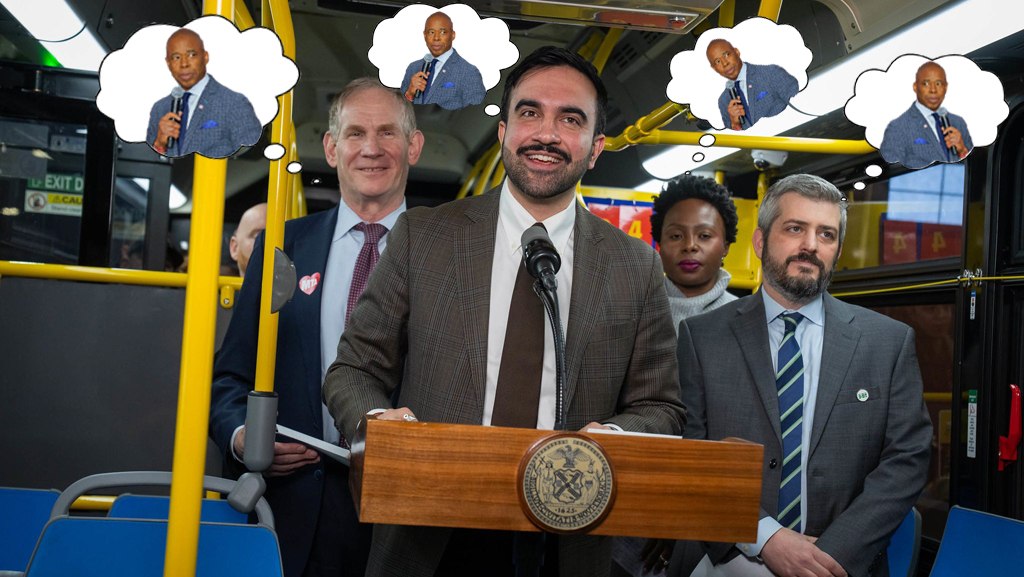Legislation that would compel the NYPD to open some of its traffic safety data to the public got a big boost today, when City Council public safety committee chair Peter Vallone Jr. announced his support at a hearing on the bill. The hearing was marked by a tense confrontation between council members and police officials who refused to concede that New Yorkers have a right to such information.
Sponsored by Council Member Jessica Lappin, Intro 120, the "Saving Lives Through Better Information Bill," would require the NYPD to post data on crashes and summonses as frequently as it releases CompStat data on violent crimes. It also stipulates that the NYPD convey where crashes occurred, who was involved, any contributing factors such as cell phone use or drunk driving, and what kinds of summonses were issued. That data, which the department already compiles, would equip New Yorkers with better information to push for safety improvements in their neighborhoods and hold the NYPD accountable for the effectiveness of its enforcement tactics.
Before the hearing, transportation committee chair Jimmy Vacca was already one of 16 co-sponsors of Intro 120. Today public safety chair Vallone, whose committee has jurisdiction over the bill, signed on. "I support this," said Vallone near the end of the hearing, "and I think the committee will too."
The police department, however, came out strongly against Intro 120, arguing that it would require too much personnel at a time when the department is already facing a manpower shortage. More importantly, police officials made it clear that they fundamentally do not believe that releasing traffic data would promote street safety.
The police's objections stemmed primarily from what was repeatedly characterized as a "philosophical difference" between the department and council members, on the question of whether traffic data is even useful to the public. "The information sought by the bill does not provide meaningful information which can illuminate the reasons for a vehicle accident or the mechanisms used to enhance traffic safety," said NYPD Chief of Transportation James Tuller. "This information is only valuable to those with the training, knowledge and experience to understand its context and interpret it correctly... That is the role of the police commander."
Council members vehemently disagreed with the department's assessment that only the police can interpret data on collisions and summonses. Vacca characterized the NYPD's position as "'Leave us alone. We know what's best.'" "I will not leave you alone," he continued. "I have a right to know."
Vallone also argued that traffic data ought to be made more open. "We were elected to do oversight and we need the information to do it," he said. He pointed to two other bills he sponsored which required making information about crime in schools and in parks publicly available.
Council Member Daniel Garodnick argued that opening up the data would provide the police with new resources to help them promote street safety. "There's a New Yorker out there who could make an iPhone app in thirty minutes," he said.
The public safety committee was more sympathetic to the NYPD's other argument, that Intro 120 would divert police resources away from law enforcement. But the NYPD did itself no favors in this discussion. First, department officials claimed that complying with Intro 120 would require the equivalent labor of 23 employees, a number which most council members called into question. Many council members cited the written testimony of former NYPD Chief of Transportation Michael Scagnelli, who stated that the department could comply with the reporting requirements of Intro 120 with very little additional effort.
The claim that it would take significantly more manpower seemed particularly dubious when Lappin presented a spreadsheet from the NYPD's TrafficStat program [PDF]. The spreadsheet already tracks a wide set of data. "Why does it take any more work to just post that on the web?" asked Lappin.
Some council members proposed compromises in which only the easiest-to-gather information would be released, which the NYPD uniformly rejected. Garodnick, for example, zeroed in on the department's Traffic Accident Management System (TAMS) database -- which already tracks the date, time and location of all traffic collisions and is fully electronic -- as an easily-released data set.
Similarly, Council Member Daniel Halloran cited his personal experience as a former NYPD officer to reiterate how much data is already computerized, in easy-to-publish formats. Halloran referred to his time on the force to hypothesize about the NYPD's objections. "Knowing how the system works from the inside," he said, "I understand that you don't want people to look at this data and jump to conclusions." Even so, Halloran was incredulous when the police stated that releasing TAMS data to the public was unacceptable to them. "Are you really saying that?" he asked.
When the public was given the opportunity to weigh in on Intro 120, all 14 speakers testified in favor, including former NYC DOT commissioner Lou Riccio, an AARP representative, public health professionals, and New Yorkers who have lost loved ones in traffic crashes. "Hopefully we will pass this bill in honor of everyone who's passed away," said Vallone after hearing the stories of those whose lives were cut short by automobiles.





